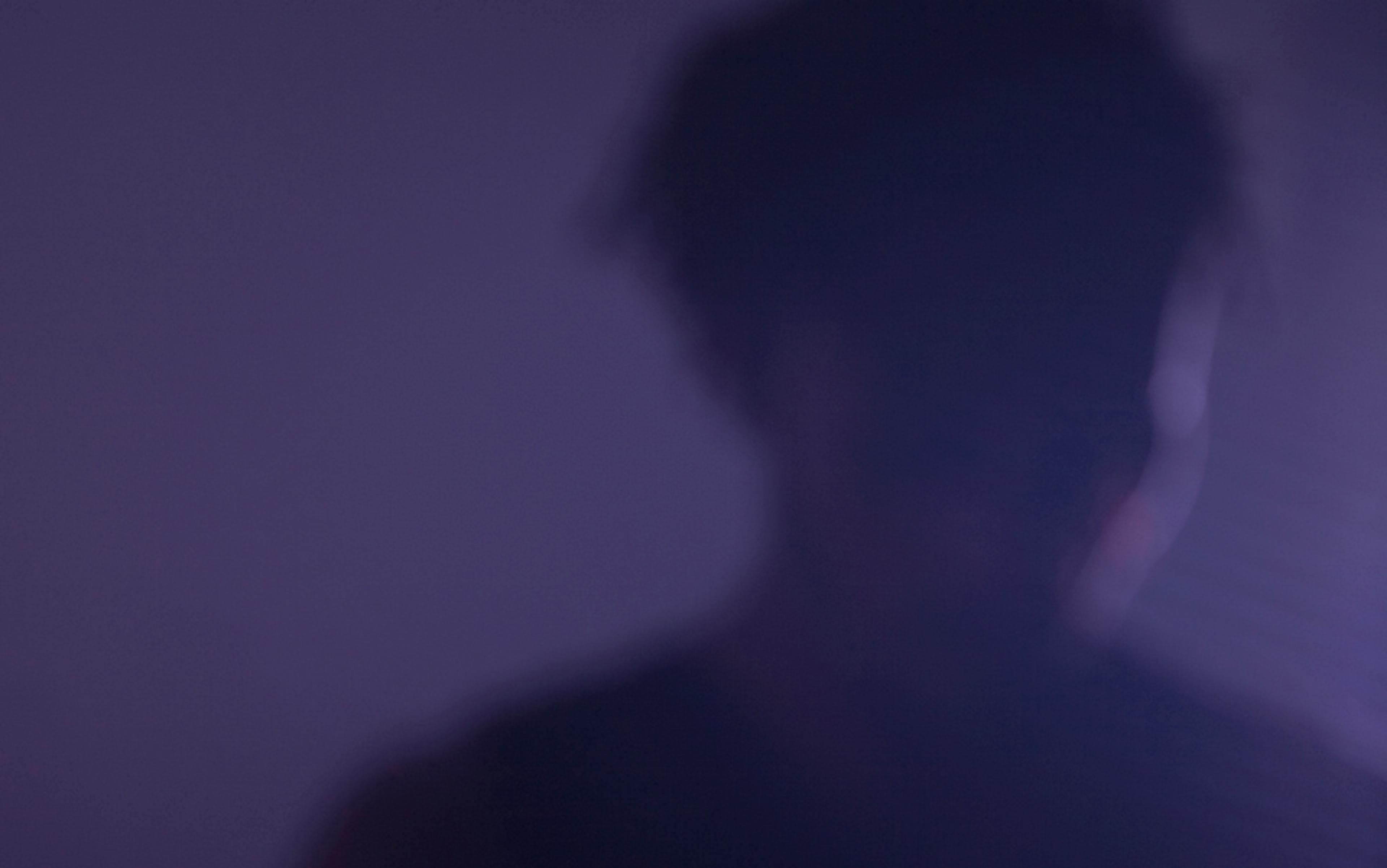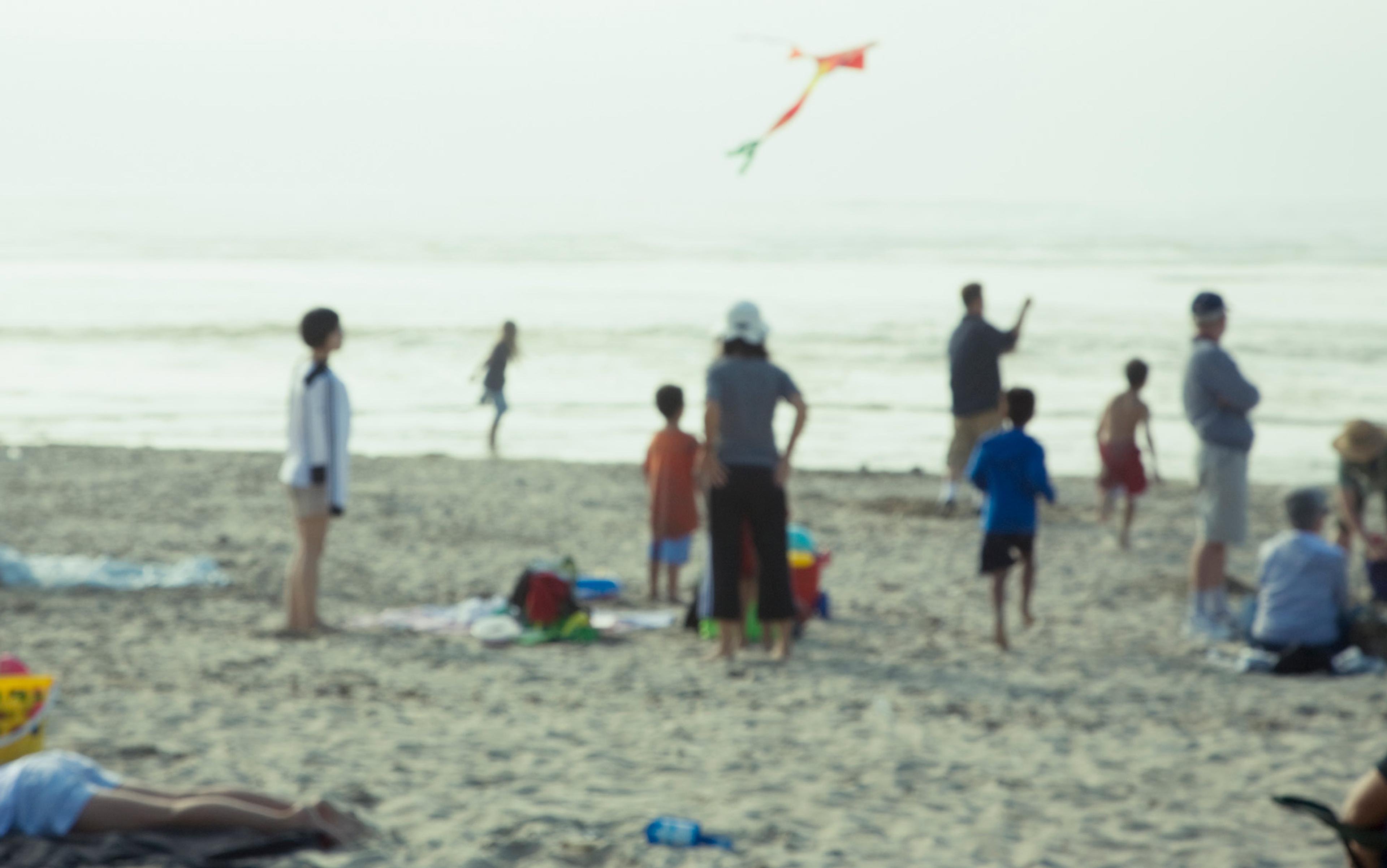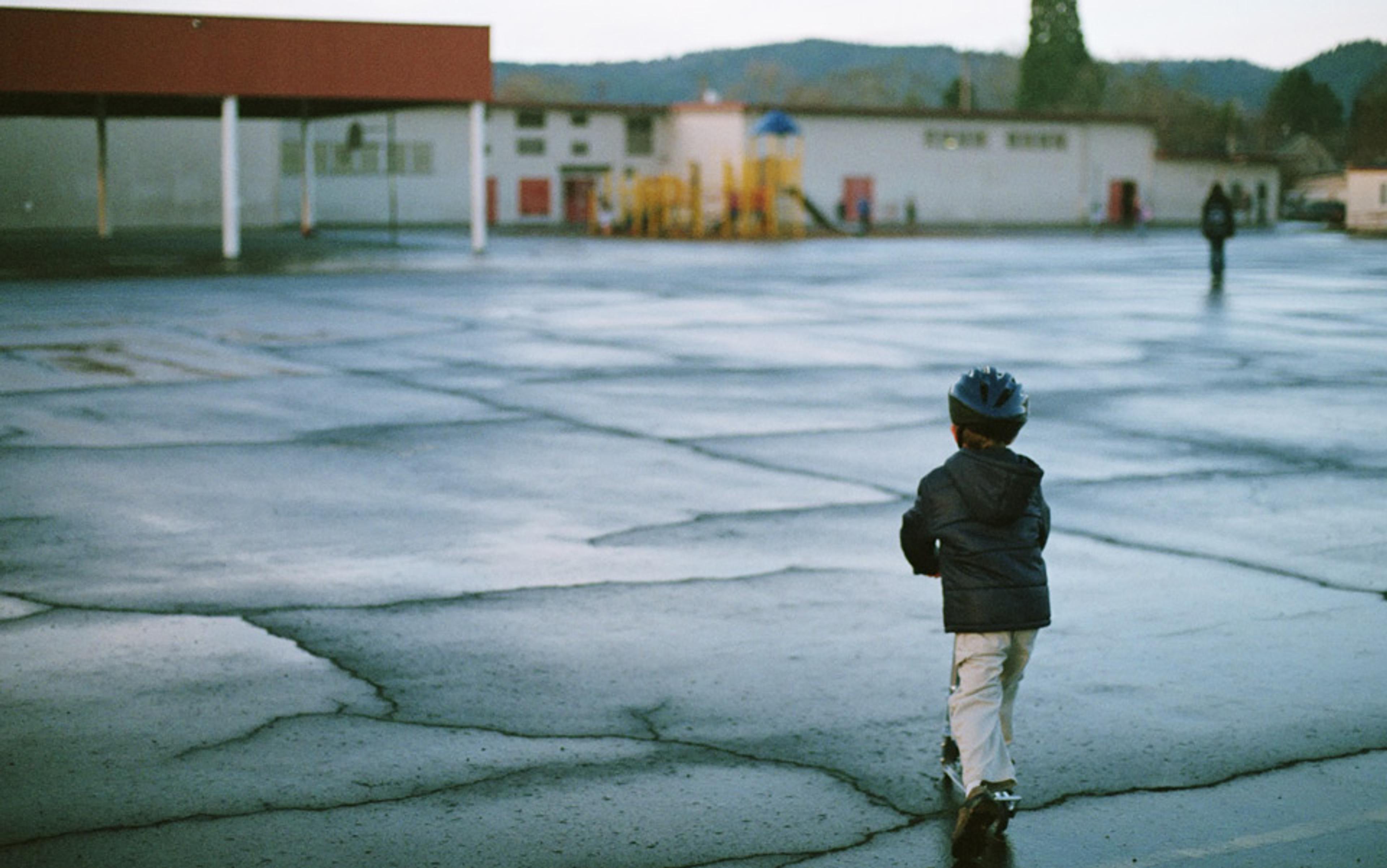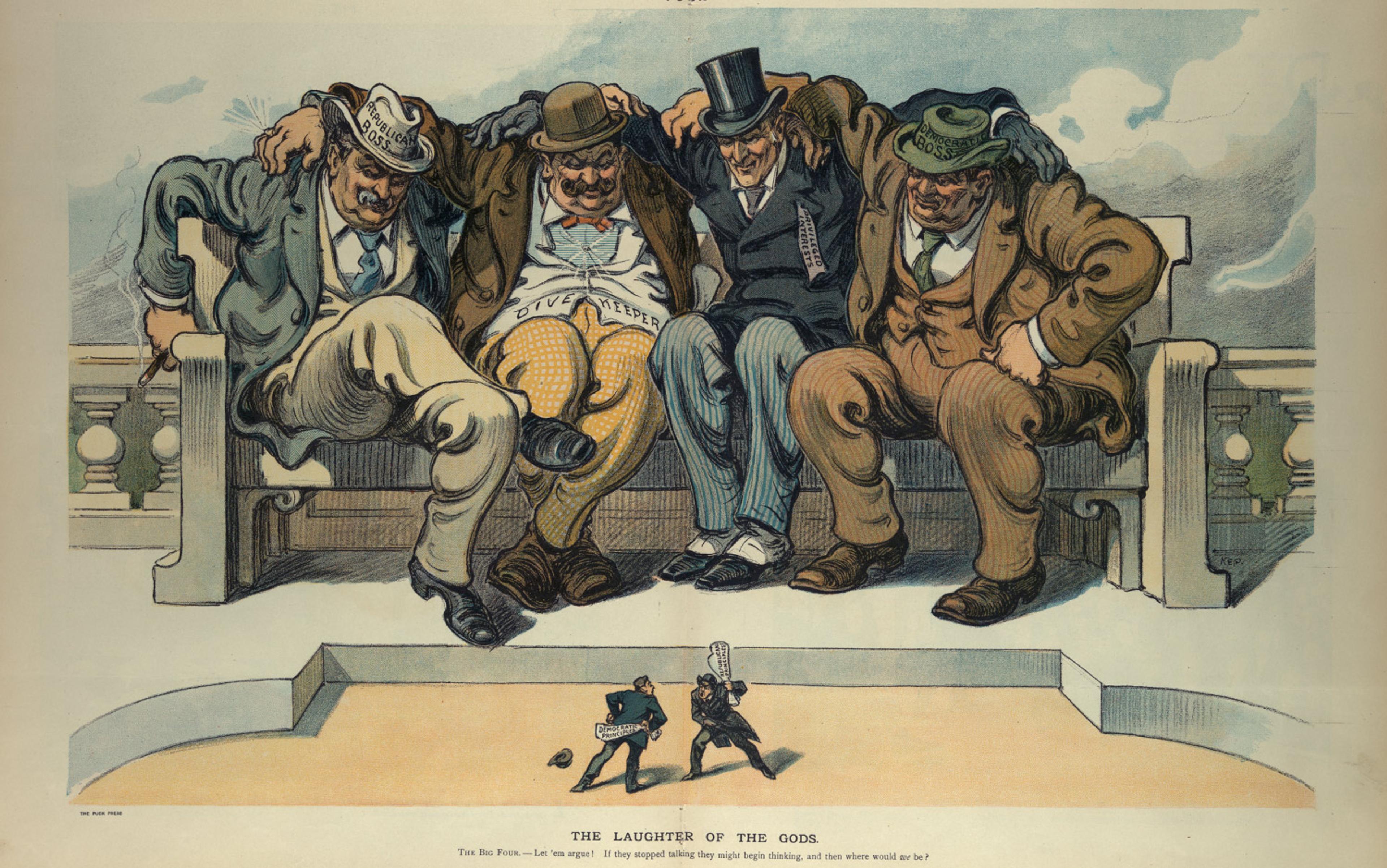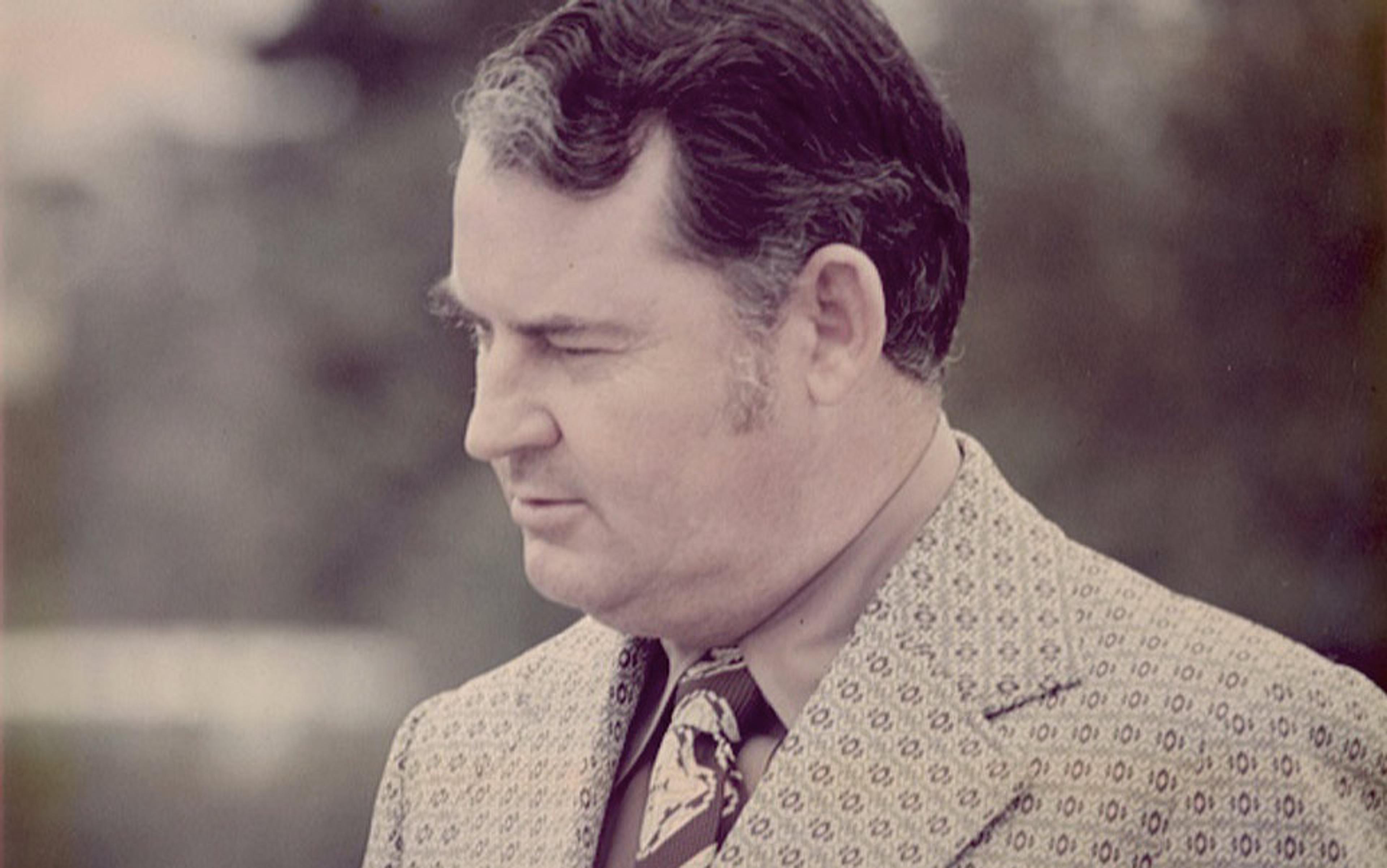In high school, my son Carson developed a fascination with Fred Phelps, the way a more typical teenager might obsess about the Marvel universe or The Vampire Diaries. Phelps, who died on March 19, was the bilious founder and leader of Topeka’s Westboro Baptist Church, infamous for setting up godhatesfags, a website dedicated to ‘opposing the fag lifestyle of soul-damning, nation-destroying filth’ and for staging noisy protests at the funerals of fallen soldiers and plane-crash victims.
After Carson read about Phelps on Wikipedia, the man’s name quickly became a joke obvious only to him. ‘Fred Phelps,’ he’d sing out, grinning mischievously. Apparently, Phelps’s congregation had a funny name, too – ‘Westboro Westboro Westboro,’ he’d repeat. Over and over.
Carson has high-functioning autism – otherwise known as Asperger’s syndrome – and he would recite these jokes, such as they were, dozens of times a day. For weeks on end. Since he had no real friends, just some kids in his special-ed classroom whom he’d talk with fitfully, I was his sole audience. Carson’s mother and I had divorced when he was nine, after which Carson went to live with her in California. But he returned to me in Seattle a few years later, when he was about to enter the eighth grade, and I was to embark on life as a single dad.
Aspergians, like others on the autism spectrum, are socially awkward: they have trouble understanding other people and can find it overwhelming to look someone new in the eye. They often persevere with subjects and activities; given half a chance, Carson would bend my ear for hours about Australian Aboriginal linguistics, Mayan aquaculture, ancient Chinese sailing technology, and other subjects I’ve no interest in.
Sometimes very nice people tell me that Aspergians are quite special. ‘Didn’t Einstein have Asperger’s?’ they ask. They press upon me books by Temple Grandin, a livestock professor who has made a second career writing for The New Yorker, or John Elder Robison, an Aspergian who has a wife and kids and an eclectic career that has included building guitars for Kiss. While I admire Grandin and Robison, who live independently and who have found ways to get along with people in everyday life, hearing them held up as examples of what Carson might achieve saddened me. He was not progressing. This went far beyond being a moody teenager, which Aspergians are no more immune to than your neighbourhood goth: in all his time with me, Carson never formed a friendship.
It was incredibly difficult to get him to do things he didn’t want to do, such as his English homework, which he claimed was boring. Nor would he try anything new. He would never have done anything in the least out of his routine if I hadn’t taken the lead. When we went camping – the Southwest, the East Coast – he showed no interest in setting up the tent or cooking or cleaning. Instead, he’d tramp about the campsite, regaling me with information about Han Dynasty sails.
Meanwhile, I consulted psychologists who specialised in Aspergian teenagers. I took him to social-skills classes for Aspergians. I hired nursing students to be his companions. Even with insurance co-pay arrangements, none of this was cheap – and that doesn’t include the time I took off work. Eventually, I lost a contract job with a software company because I left work early so often. And then I spent endless days pleading, bribing, cajoling and yelling at Carson to do his homework, take out the trash, stop going on and on about Aboriginal linguistics.
Boredom, anxiety, exhaustion and anger were constant companions. Which is not to say that Carson couldn’t be sweet, and wonderful. Once, for example, when I was broken-hearted over being left by yet another girlfriend, he baked me a chocolate cake. But such lovely moments were few and far between.
There was something else, too. When you are raising a child with a developmental disability, if you are not careful, you can get a little fatheaded about it. Everyone tells you that you’re a wonderful parent. There are no end of books and magazine articles and movies telling you that you stand shoulder-to-shoulder with legions of Autism Heroes and Mother Warriors. And while I wanted to help my son, there was part of me that badly wanted people to say, ‘There goes Kent. God, what a great father. What an amazing guy.’ It clouded my judgment.
One day, my son came home with the news that Fred Phelps – or, to be exact, his followers – were coming to protest at his high school. Carson attended Garfield High, an ethnically diverse school with a rich tradition of arty types – Michael Jackson’s producer Quincy Jones and Jimi Hendrix were both alumni. Garfield strongly supports lesbian, gay, bisexual and transgender (LGBT) students, which doubtless drew Phelps’s ire, but probably of greater interest to him was its proximity to Seattle’s major TV stations.
At first my biggest concern was noise. Like many people with autism, Carson hates loud, unexpected noises. Something as innocuous as a vacuum cleaner being switched on can make him clamp his hands to his ears with pain. And, as surely as the earth spins, there’d be plenty of noise when Phelps’s minions showed up.
By this time – spring 2009 – the roles played by all parties involved in the Westboro roadshow were as familiar as the squabbles in a seventh-season episode of Friends. A handful of Westborians would scream and wave placards; they’d be outnumbered by reporters and then ringed in by stone-faced cops. Given Seattle’s colourful liberal politics, I had no doubt that a boisterous crowd of counter-protesters would be on hand.
Like many intelligent teenagers, Carson ishyper-opinionated. When Obama and McCain ran for president, he lectured frat boys outside Seattle’s nightclubs on what a terrible president George Bush was
In what follows, it’s important to realise that my son is African-American. The brutal fact is that in any sort of dispute, he was far more likely than any white kid to be suspected, get arrested, go to jail. Yet he was oblivious to these ugly facts. As long as he lived with me, in a fairly benign and tolerant city, I could protect him. Somewhat. But I couldn’t watch over him my entire life. One day he might find himself in a place that was a great deal less tolerant of an oddly-acting young black man.
Besides, Carson is more than intelligent enough to get into trouble. When he’s excited about something – which is often – he talks faster than any character actor in The Social Network. Like many other intelligent teenagers, Carson is hyper-opinionated. During the fall of 2008, when Obama and McCain were running for president, Carson’s brainstorm was to go and lecture the frat boys waiting in line outside Seattle’s nightclubs on what a terrible president George Bush was.
‘Don’t do it Carson. Please don’t do it,’ I’d beg him.
‘Why not? I have the right to say whatever I want.’
‘Sometimes it’s better to just, you know, not say anything.’
‘But George Bush is evil.’ And so it went.
I’d feel my breathing become quick and shallow, and a tenseness would spread across my shoulders. I’m gonna have a coronary, I’d think. But I’d keep trying. I’d tell him that people didn’t always act with reason.
‘They should,’ he retorted. ‘Feelings are not efficient.’
‘Let me finish. OK? Can I finish? This is important.’
‘So is behaving ethically. Which is what I will do if I tell people about George Bush.’
‘Listen. There may be a fight. Someone may hit you.’
He was pacing quickly, but then he stopped and held up an admonishing finger. He didn’t look me in the eye, though. ‘That would be morally wrong,’ he said.
In the years since then, I don’t think much has changed in the way people talk about autism. In spite of cogent arguments from campaigners such as Emily Willingham, many parents continue to believe that vaccinations cause autism. From publishers there comes a never-ending stream of memoirs by parents proclaiming a connection, a breakthrough, a success, however halting, with their child. There’s Jenny McCarthy’s Mother Warriors: A Nation of Parents Healing Autism against All Odds and Ron Suskind’s Life, Animated: A story of Sidekicks, Heroes and Autism.
The Boston College sociologist Amy Sousa has studied 33 such memoirs and finds the dominant self-image of these writers is that of ‘warrior-hero’. Regardless of whether or not most parents of children with Asperger’s are able to live up to the hype, this is quite a swing from the old notion, notoriously championed by the Austrian-born psychologist Bruno Bettelheim in the 1960s, that emotionally distant ‘refrigerator mothers’ caused autism.
Had I been more aware, I might have noticed that in the days before Westboro’s arrival, Carson had stopped joking about them. The night before the protest, he was nervously pacing the house. Finally he admitted to being scared about what might happen the following morning. I had him sit on the couch next to me and held his hand while we talked. Carson worried that he might be caught in a clash between Westboro followers and counter-protesters. Specifically, he worried that people from the Westboro church might single him out because he is black.
His teachers and I had talked to him about what might happen. But the high-school rumour mill has a life of its own. For someone with Carson’s limited social skills, it exerted even more sway than usual. He’d heard a rumour that the Westboro people made money by using racial slurs to goad black people into assaulting them. Then they’d sue and collect lots of money.
In life, Phelps always denied that he was racially prejudiced, and perhaps he wasn’t. But when you launch a website called godhatesfags this is rather too subtle a point to convey clearly. Intellectually, Carson knew his history. He knew about Jim Crow and Emmett Till, and the back of the bus. But this was the first time that he had felt personally threatened by potential racists. It was another significant step in the loss of childhood, and it was made especially poignant because he was giving voice to a fear that I, as a white man, would never experience myself. I can read all the books in the world about racism, but I’ll never know first-hand what it is like for its victims. That night, Carson did. He worked his mind over the rumours.
‘Maybe they’ll come after me because I’m phenotypically African-American,’ he said. Well in that case, I told him, he might be better off staying inside the school all day.
‘Oh! I wouldn’t go anywhere near them. But what about when I have to get off the bus?’
I explained that the school would not allow any trouble, and that there’d be many police there too.
To my ears, Carson’s laughter was the best music in the world. Fred Phelps and his gang had bumbled into making my son a little braver
We discussed in great detail which of his classrooms would offer the best view of the protesters, and whom he could talk to if he had any worries. Together we made sure to pack a sponge ball in his backpack. If he felt stressed, he could squeeze it. When Carson went to bed, it struck me that this evening had been one of those special moments when the veil of normality is punctured, allowing us to draw closer.
The next afternoon the door slammed emphatically as Carson rushed in with more-than-usual gusto. He was incredulous. ‘Dad – they said we were all baby-eaters!’ And: ‘That just doesn’t make any sense, saying Obama is both a gorilla and a Nazi!’ He breathlessly rat-a-tat-tatted his surprise at the day’s events: how puny and churlish the Westboro gang appeared, the billowing masses of well-behaved counter-protesters, the zestful political discussions with classmates and teachers, the unexpectedly tranquil journeys to and from school.
And then he laughed, gales of bright, pealing laughter. To my ears, that was the best music in the world. Fred Phelps and his gang had bumbled into making my Carson a little braver. And for that, I am very thankful. Perhaps, if this were a typical magazine article, I would say that this was a breakthrough, that after that he started making friends, or at least acting a little more independently, or confidently. But that would not be true. My son’s brush with the Westboro protesters was a high point of his ability to cope with the world.
Lately I have noticed books such as Jennifer Elder’s Different Like Me and Jennifer Cook O’Toole’s The Asperkid’s (Secret) Book of Social Rules, which promise to deliver guidance to young Aspergians. I don’t know who reads these books, but even if they’d been available in 2009, they would have been no use to Carson: he simply wasn’t interested in getting along in the world.
Sometimes I wonder why Carson became obsessed with Fred Phelps. I wonder if, in Phelps, he sensed a kindred spirit; not an Aspergian, perhaps, but someone who absolutely did not care what anyone thought and yet had been successful in bending those around him to his will. Then again, Carson detested homophobia. So maybe the pull was his very human fascination with evil.
All are possible explanations. That I have no idea which is most accurate only goes to show that a person with autism is just like any other person, in that there’s a lot you’ll never know for sure. Carson is now 22 and lives with his mother in California. I don’t know what will become of him – if he’ll become independent and happy, or not. However, I do I know that if I keep wishing and hoping for him to ‘get better’, I’ll go crazy.
